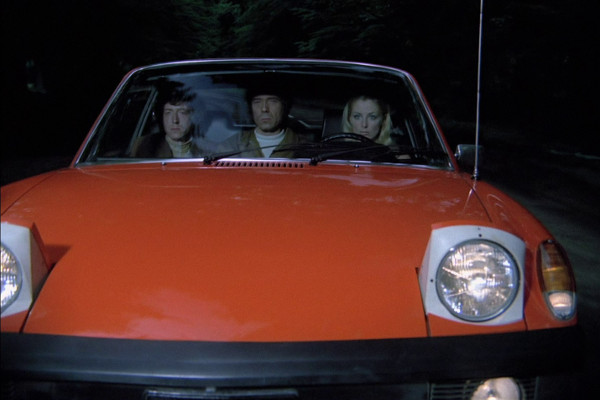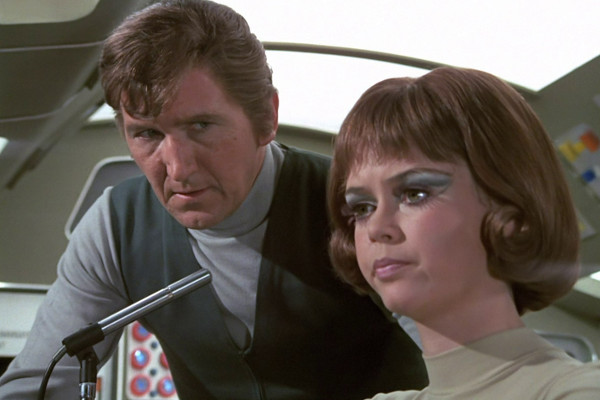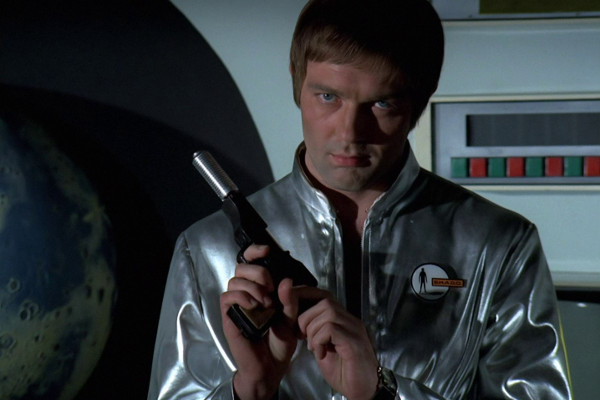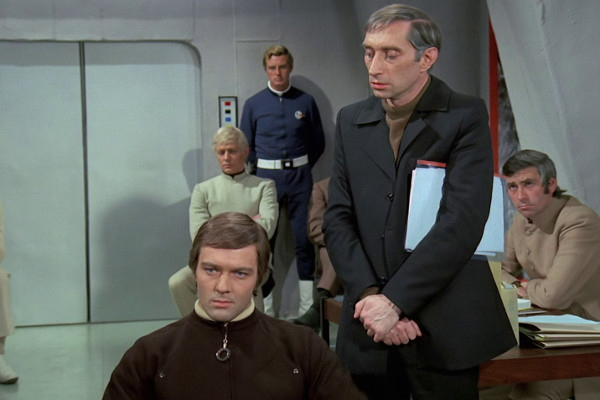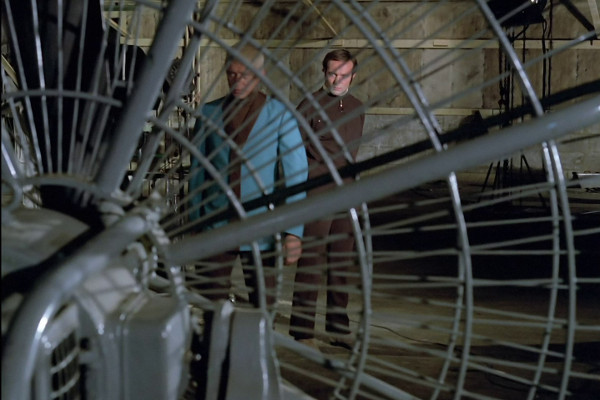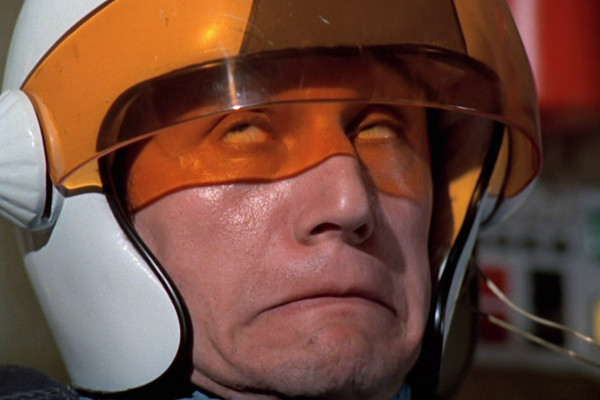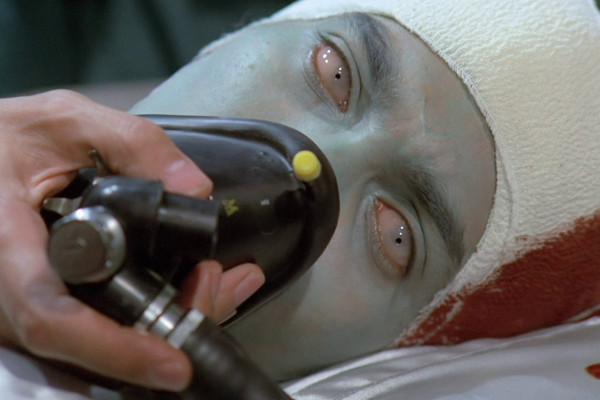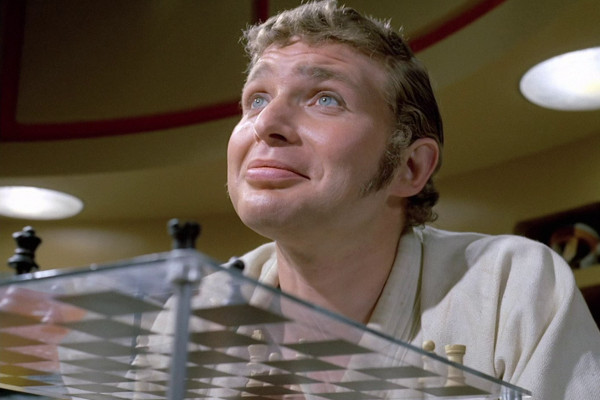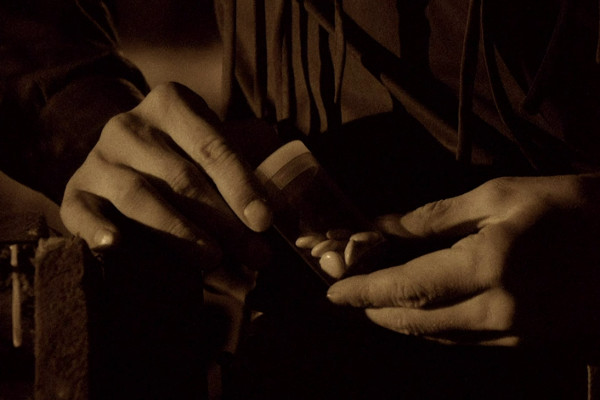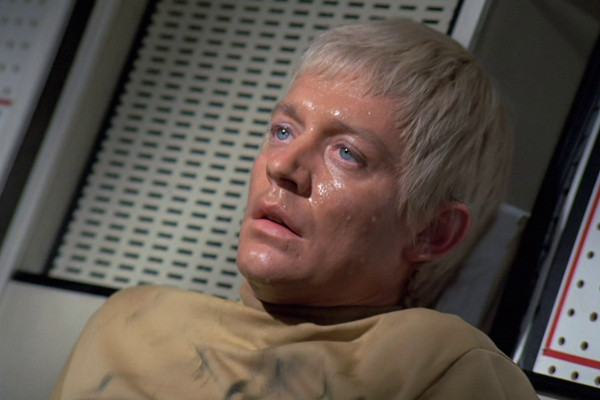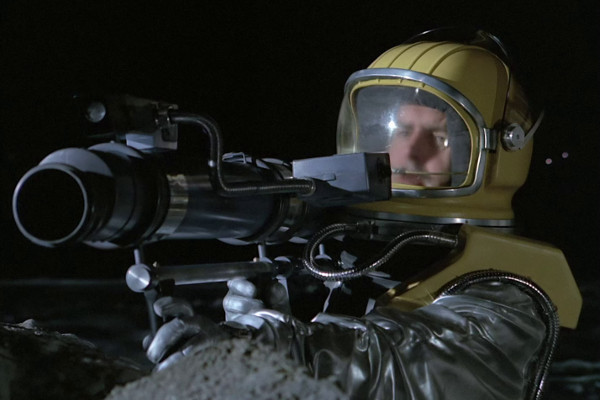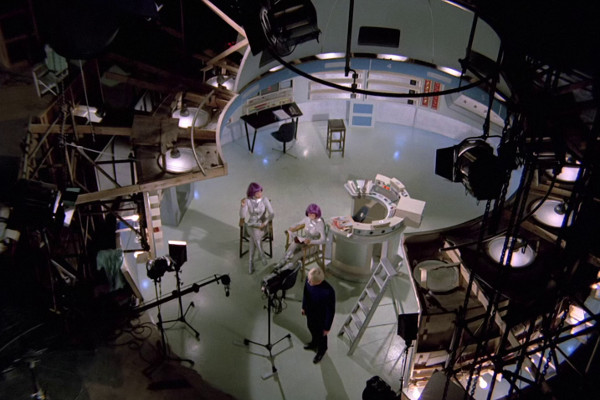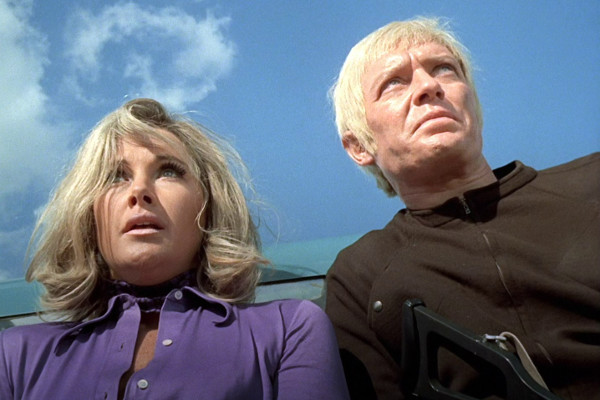UFO episodes ranked by The Anorak Zone who ranked them 5 years previously hence the places up or down signs. Lots of interesting behind the scenes info here too.
I don't agree with a lot of these placings, but the top episodes I do concur. I agree Close Up , Ordeal and Dalotek Affair are poor, but I would put Confetti Check A-O.K down there too. ESP I quite like, I'd place it maybe just outside top 10. Top 4 I agree with, but I'd certainly put Psychobombs and Kill Straker higher, in top 10.
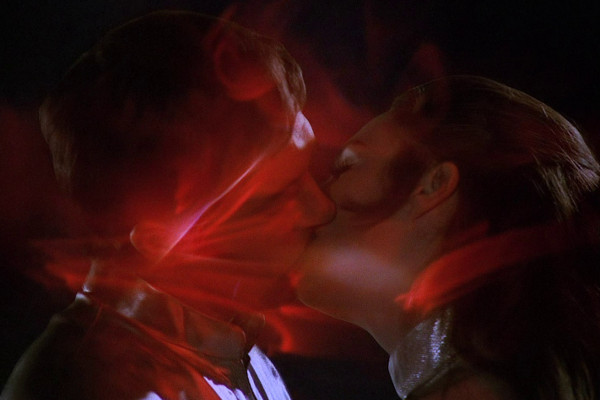
26 The Dalotek Affair
↑ Down 5 Places
Perhaps the only genuinely below-par episode of UFO, The Dalotek Affair is the series at its most tacky and inane. The idea of a private company setting up on the Moon and inadvertently threatening the security of Moonbase is a decent one, but it's clouded with slapdash production and too many childish innuendos. The cast are at their least charming here, and Straker's involvement doesn't really change a single thing, though it's telling he's able to piece together all the clues and make sense of the plot when he watches back a video clip and hears the word "balls".
The entire story is told in excruciating flashback, as Paul Foster relates the tale of a top secret security breach to Alec Freeman... in the middle of a crowded restaurant. Instead of giving every diner the "amnesia drug" he gave to the residents of the private company, he instead uses it as a kind of reverse rohypnol, using his knowledge of the company's scientists to chat up their female operative when he sees her in a restaurant some months later. It's an inexplicably amoral piece of characterisation, yet the viewers are supposed to be charmed instead of repulsed.
In an earlier review this story was five places higher, and praised as "supremely watchable garbage". It's damning the episode with faint praise, but on repeat viewings even that begrudging compliment doesn't stand up to close scrutiny.
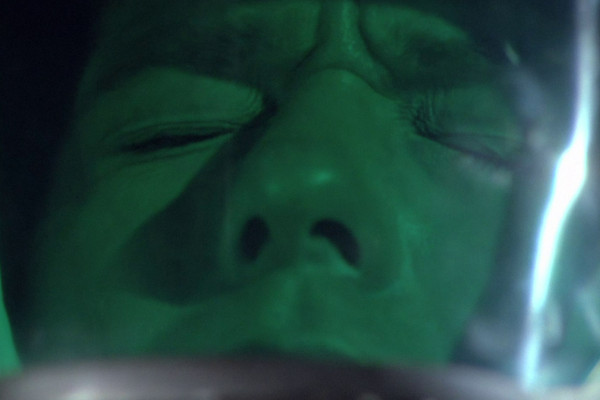
25 Ordeal
↓ Up 1 Place
Ordeal perhaps isn't so bad if you're really in the mood for a lighter, jokier take on the show, and is more just inessential than anything else. UFO does, like many series with a 26 episode quota, struggle to make them all essential viewing. In fact, if you were being really unkind, you could suggest that half the episodes could be skipped without missing anything vital to the series.
This article will try to avoid discussing plot resolutions too much to avoid revealing any surprises, but Ordeal does - spoiler - end with a "it was all a dream" climax, meaning 27 minutes of the episode was all in one character's mind. As a result it is, by definition, a time filler, and no more. Well, unless you're a viewer who likes seeing the handsome Colonel Paul Foster (Michael Billington) with his shirt off for most of the episode, then it's a higher priority in your viewing habits.
Nineteen of the series' episodes were directed by personnel who had previously worked on Gerry Anderson's puppet-based productions, including this one. In an interview with Starlog magazine (Issue 71, 1983) Billington described the role as "moderately enjoyable", but that the directors were largely inexperienced with working with actors. "It wasn't that they were bad, it was just hard for them to contend with directing real people."
I don't agree with a lot of these placings, but the top episodes I do concur. I agree Close Up , Ordeal and Dalotek Affair are poor, but I would put Confetti Check A-O.K down there too. ESP I quite like, I'd place it maybe just outside top 10. Top 4 I agree with, but I'd certainly put Psychobombs and Kill Straker higher, in top 10.

26 The Dalotek Affair
↑ Down 5 Places
Perhaps the only genuinely below-par episode of UFO, The Dalotek Affair is the series at its most tacky and inane. The idea of a private company setting up on the Moon and inadvertently threatening the security of Moonbase is a decent one, but it's clouded with slapdash production and too many childish innuendos. The cast are at their least charming here, and Straker's involvement doesn't really change a single thing, though it's telling he's able to piece together all the clues and make sense of the plot when he watches back a video clip and hears the word "balls".
The entire story is told in excruciating flashback, as Paul Foster relates the tale of a top secret security breach to Alec Freeman... in the middle of a crowded restaurant. Instead of giving every diner the "amnesia drug" he gave to the residents of the private company, he instead uses it as a kind of reverse rohypnol, using his knowledge of the company's scientists to chat up their female operative when he sees her in a restaurant some months later. It's an inexplicably amoral piece of characterisation, yet the viewers are supposed to be charmed instead of repulsed.
In an earlier review this story was five places higher, and praised as "supremely watchable garbage". It's damning the episode with faint praise, but on repeat viewings even that begrudging compliment doesn't stand up to close scrutiny.

25 Ordeal
↓ Up 1 Place
Ordeal perhaps isn't so bad if you're really in the mood for a lighter, jokier take on the show, and is more just inessential than anything else. UFO does, like many series with a 26 episode quota, struggle to make them all essential viewing. In fact, if you were being really unkind, you could suggest that half the episodes could be skipped without missing anything vital to the series.
This article will try to avoid discussing plot resolutions too much to avoid revealing any surprises, but Ordeal does - spoiler - end with a "it was all a dream" climax, meaning 27 minutes of the episode was all in one character's mind. As a result it is, by definition, a time filler, and no more. Well, unless you're a viewer who likes seeing the handsome Colonel Paul Foster (Michael Billington) with his shirt off for most of the episode, then it's a higher priority in your viewing habits.
Nineteen of the series' episodes were directed by personnel who had previously worked on Gerry Anderson's puppet-based productions, including this one. In an interview with Starlog magazine (Issue 71, 1983) Billington described the role as "moderately enjoyable", but that the directors were largely inexperienced with working with actors. "It wasn't that they were bad, it was just hard for them to contend with directing real people."
Last edited:




